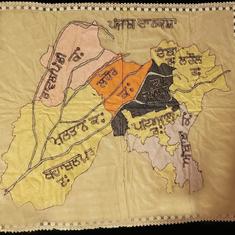Jaitley’s attempt to spin the situation would baffle anyone who has been monitoring how eagerly the prime minister has been facilitating the entry into the government of the RSS, the parent organisation of Modi's BJP. Jaitley appears embarrassingly disingenuous when he attempts to draw a distinction between the agenda of Modi, who started his career in public life as a full-time RSS volunteer, and that of the Sangh.
Of course, on the face of it, neither organisation is willing to admit that the RSS has any political ambitions. After all, in 1949, the RSS gave an undertaking that it would act solely as a cultural organisation, a strategy it adopted to wriggle out of the ban imposed on it following the association of some of its members with the conspiracy to assassinate Mahatma Gandhi. Article 4 of the RSS constitution, adopted in 1949 before the ban was lifted, states: “The Sangh, as such, has no politics and is devoted purely to cultural work.”
No guidelines to party
Even after the Lok Sabha election results in May, the RSS emphasised this idea. “Sangh has not given any guidelines to the BJP after its historic victory in the Lok Sabha polls, nor to Modiji,” Ram Madhav, who was then the national spokesperson of the RSS, said on May 18. "RSS never keeps any remote control to perform any role in politics and government."
A few weeks later, Ram Madhav, along with another RSS pracharak Shiv Prakash, entered the BJP. When the party’s organisational structure was revamped under new president Amit Shah,several key positions in the BJP were handed over to men who had come from the RSS. Simultaneously, the RSS also reworked on the distribution of its own internal responsibilities, primarily to ensure better control over the ruling party.
In the reshuffle, the responsibility of liaising with the BJP was taken away from RSS joint general secretary Suresh Soni, who had held this position for almost a decade, and given to Krishna Gopal, another joint general secretary in the Sangh. In addition, the RSS has also started setting up a set of committees – from national to district level – to ensure the coordinated functioning of its various arms, including the BJP, the Vishwa Hindu Parishad, its Akhil Bharatiya Vidyarthi Parishad student arm, the Dharma Jagaran Manch (which is in the centre of the conversion row).
A willing partner
Not only has Modi failed to insulate the ruling party and its popular mandate from the RSS and its affiliates, he has given enough indications that he is a willing partner in the Sangh’s attempt to steer his government. Many ministers in the Modi government are RSS members.
If one needs proof that the RSS affiliates like the Dharma Jagaran Manch have the approval of those in power, it is evident not just in Modi's failure to criticise its so-called reconversion drive in Agra but also in the manner he has sought to transfer the BJP’s mandate to the Sangh. Take the case of the functioning of the Human Resources Development ministry. The RSS is involved not only in the planning of an elaborate exercise to effect changes in the education system and curriculum, it has also launched a silent drive to identify experts who can staff various committees of the HRD Ministry as well as the top posts in higher educational institutions run by it.
The frequent reports of HRD Minister Smriti Irani taking instructions on regular basis from the office-bearers of RSS and its affiliates have only reinforced the perception that there is hardly any distinction between Modi and the mother ship.










